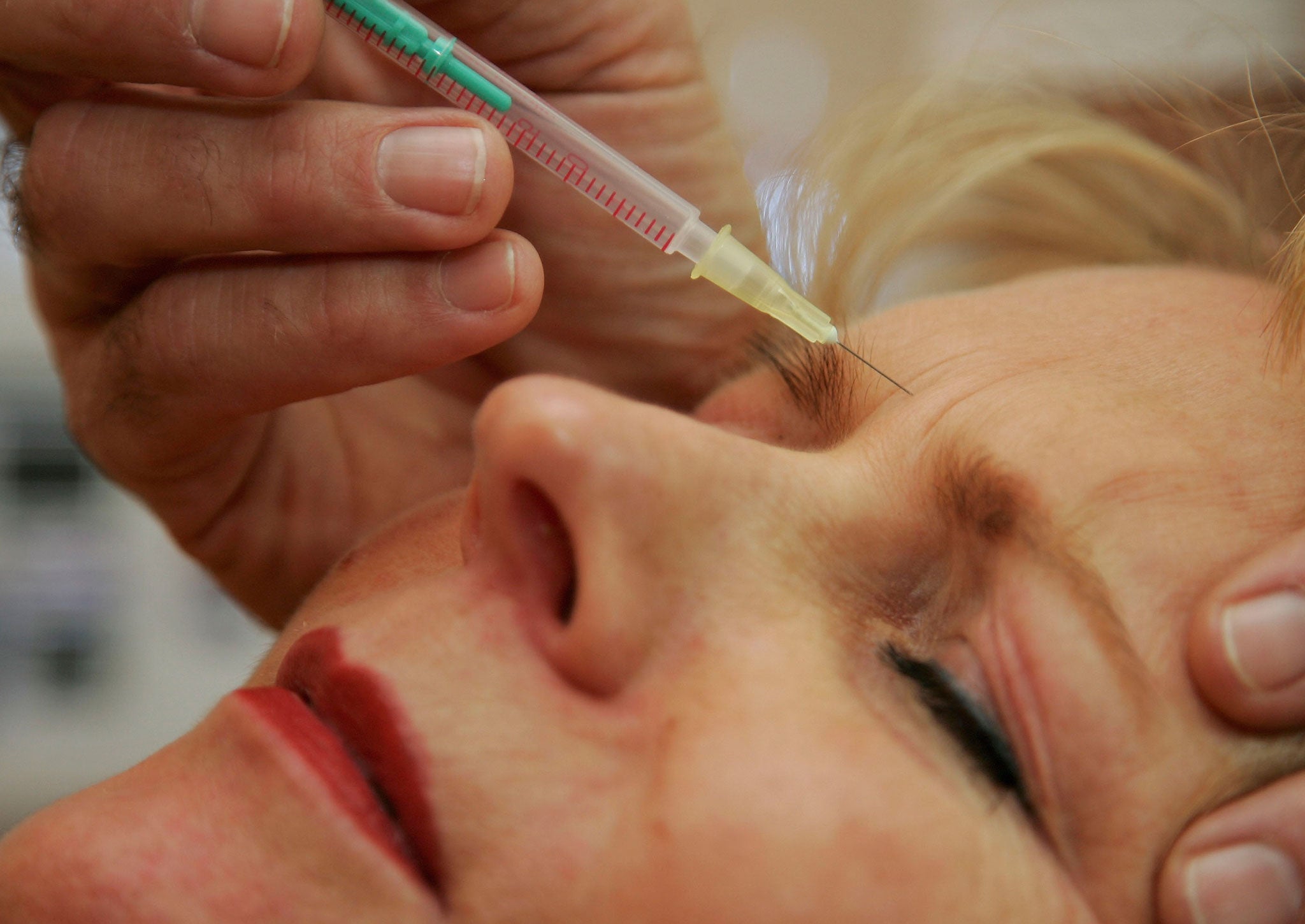The Independent's journalism is supported by our readers. When you purchase through links on our site, we may earn commission.
Botox and ketamine could help treat depression, study finds
Researchers are trying to work out if removing people's wrinkles with Botox simply makes them feel better or if there is some other effect

Ketamine and Botox appear to reduce rates of depression, according to a new study.
Researchers in California studied a US database in which adverse effects of drugs were reported.
They found that depression among more than 41,000 people who took ketamine to relieve pain was half as common as among those who took other forms of painkiller.
Those who used the anti-wrinkle agent Botox, an antibiotic called minocycline, and a painkiller, diclofenac, also had lower rates of depression than might be expected.
While this does not prove a causal link, the correlation suggests there might be a useful effect.
Ketamine is better known for its anaesthetic qualities, being used legally to tranquillise horses and illegally as a date-rape drug, and is also taken illicitly for its hallucinogenic properties.
However one of the researchers, Professor Ruben Abagyan, of University of California San Diego, said their study added weight to previous suggestions that it could be a useful treatment for depression.
“Current Food and Drug Administration-approved treatments for depression fail for millions of people because they don't work or don't work fast enough,” he said.
“This study extends small-scale clinical evidence that ketamine can be used to alleviate depression, and provides needed solid statistical support for wider clinical applications and possibly larger scale clinical trials.”
However the researchers cautioned people taking ketamine could have been less likely to be depressed because the drug was controlling their pain or for some other reason common to people taking it.
It is thought diclofenac and minocycline may help with depression because they both reduce inflammation in the body.
The reasons why Botox might have the same effect were unclear.
The researchers said they were now trying to separate its superficial effects — which could make someone feel better emotionally— from any properties which could be useful in treating depression.
As part of this work, they are looking to see if other cosmetic treatments produce similar results or whether there is something particular about Botox.
An article about the research was published in the journal Scientific Reports.
Join our commenting forum
Join thought-provoking conversations, follow other Independent readers and see their replies
Comments
Bookmark popover
Removed from bookmarks